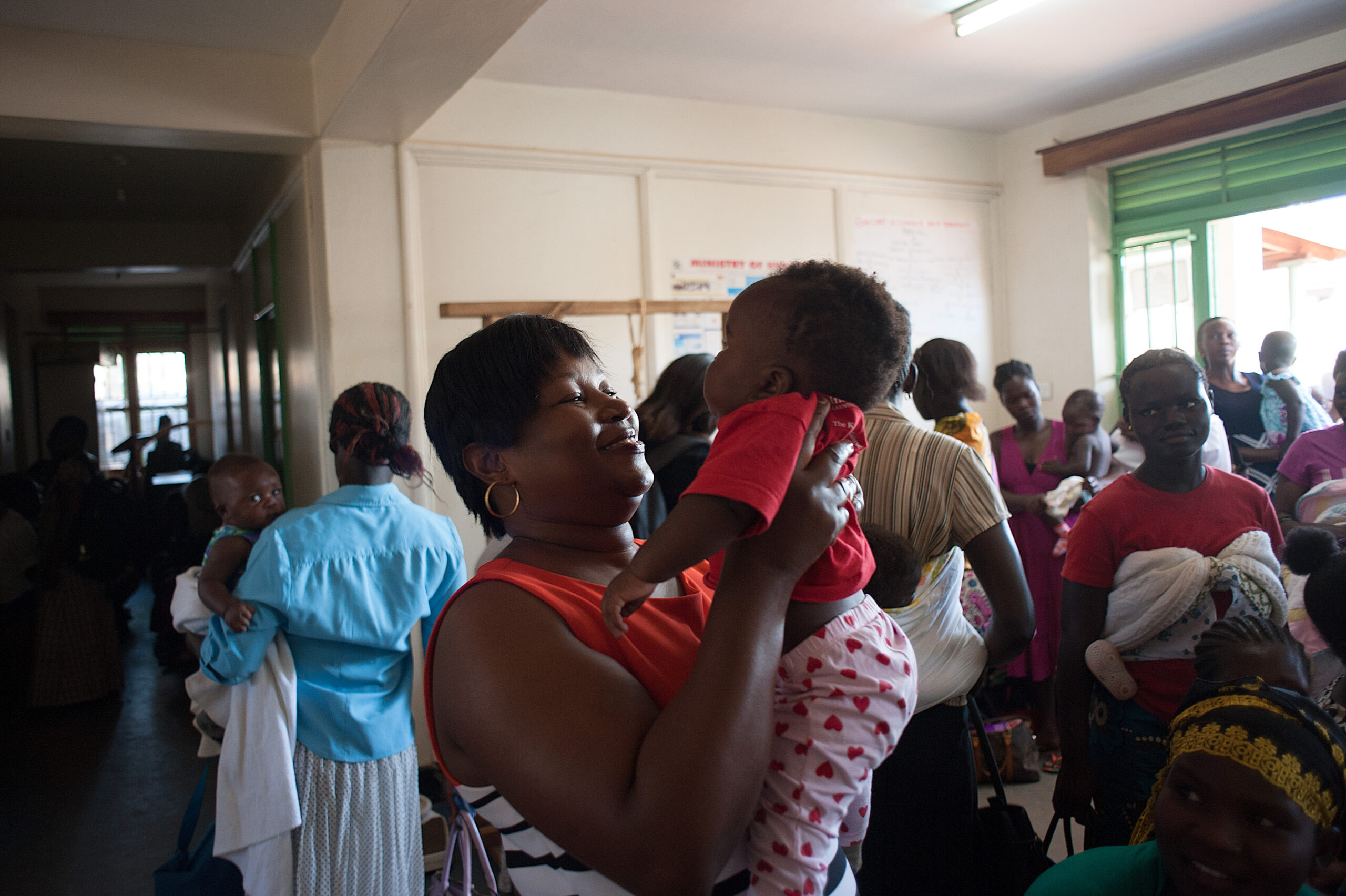
Reaching every family in Uganda through Integrated Child Health Days

Across Uganda, the months of April and October arrive with a special focus on improving child health. Those two months are designated by the Ministry of Health each year as Integrated Child Health Days, when the health sector doubles down on reaching children and families with services like routine immunization, vitamin A supplementation, health promotion and education, increased awareness on water, sanitation and hygiene. Rather than offering services one at a time, health clinics, posts, and workers bundle services to offer a “package” of interventions to parents and children.
In Uganda, where primary health care budgets do not yet fully meet demand, integrated child health services provide a high return on investment, compared to routine services that are often offered one by one. Global and local evidence show that this “package” approach can achieve high coverage and reduce child and maternal illness and mortality. While immunization programs are expensive, utilizing that platform for offering other essential services is a cost-effective approach for saving time, money – and most importantly, lives.
Integrated Child Health Days during the time of COVID-19
This year, April’s Child Health Days arrived with a sense of urgency because of the impacts of COVID-19 on routine immunizations and other primary health care services. Early in the year, routine immunizations were down more than 20 percent in Uganda, as access became more difficult due to Covid-19 restrictions. This dramatic decrease put the lives of many children at risk from preventable illnesses like rotavirus, measles, and pneumococcal disease.
Widespread social mobilization is a key component of ICH Days. [Read a story about Sister Allen reaching communities during ICH Days 2020.] During April, health workers flooded communities with vaccines and basic supplies, and community groups organized to remind families about the importance of attending clinics and taking advantage of increased coverage of services for their children. By the end of April, immunization rates had returned to normal, and millions more babies were protected from preventable illnesses.
“As I speak, we are back to the same level [of immunizations] as pre-pandemic. Integrated child health days are devoted to ensuring every child who has missed their immunization schedule for one reason or another catches up with the required immunization doses fit for their age. The days are also used as an opportunity to intensify our health education and promotion targeting household members including couples on the issues of nutrition, child spacing and water, sanitation and hygiene (WASH).”
-Dr. Driwale Alfred, Program Manager, Uganda National Expanded Program for Immunization (UNEPI), speaking about April’s Integrated Child Health Days
While the primary focus of integrated child health days are children under 15, increasingly caretakers and parents have become a focus of the ICH Days. Couples, for example, are encouraged to go together to have their children immunized, where they receive information and services related to child spacing, water sanitation and hygiene, and nutrition education. Expecting mothers – especially young mothers – can receive antenatal care and education. [Read about Uganda’s COVID-19 “baby boom,” which has particularly impacted young women.]
Investing in immunization means investing in Uganda’s future
Expanding immunization services requires significant investments, but the cost-effectiveness of that financing – as demonstrated by efforts like Integrated Child Health Days – suggests that Uganda’s government must continue to steadily increase financing for immunization each year. This financing ensures quality of human resources – including vaccinators, supervisors, data managers and community mobilizers – as well as the logistics and cold chain system so vaccines can reach the last mile, which is often the hardest. COVID-19 has also demonstrated that resources must be on hand for prevention and standard operating procedures (SOPs), which include handwashing points, creating space for social distancing, and ensuring the health workers have the right PPEs.
ICH Days provide a major return on investment for both families and the Ministry of Health – and demonstrate the power of immunization programs. For families, a visit to this “one-stop shop” can provide them with not only immunizations and basic medicines – but the knowledge to create a healthier future.


